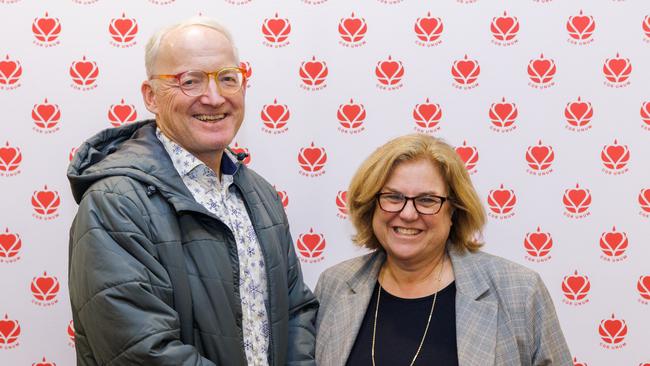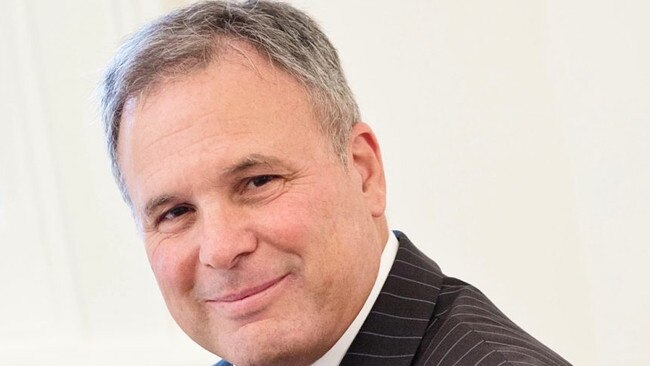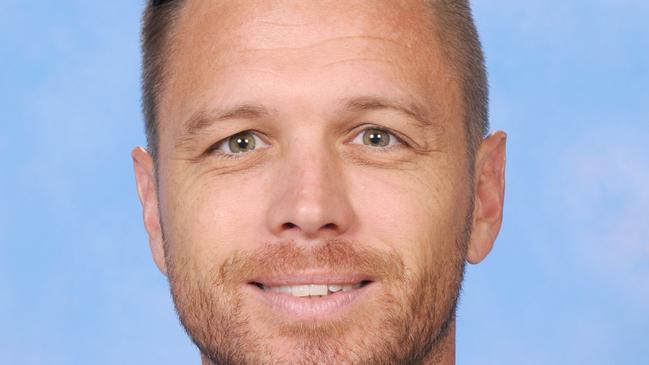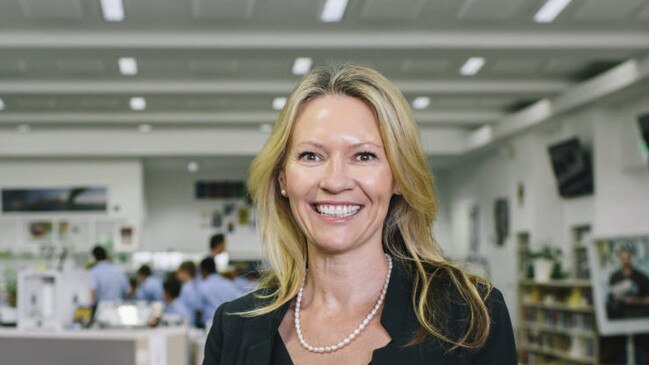Whether you’re on board or not, artificial intelligence (AI) is seeping its way into education through learning and teaching – with NSW Education now trialling a statewide framework for classroom implementation.
As some schools do their best to reject AI, others are embracing its rapid rise in the classroom and are now finding methods to implement it in a way that benefits students, teachers and even parents.
Pymble Ladies College recently spoke to The Telegraph about embracing AI in the classroom – with the fear students could be “left behind” if its not embraced in the curriculum.
“Re-shape education”
St Peter’s Anglican Grammar Interim Headmaster Alastair Walker, said AI will reshape education as we know it – but remained apprehensive about its inclusion.

“My concern is preparing students to use AI well, so that it increases their problem-solving and creativity in the future – rather than having AI doing the thinking for you,” Mr Walker said.
Mr Walker said staff are being trained to use AI, but have highlighted major concerns including plagiarism and the “loss of individual voice” as a result of the booming tech.
“It‘s worth us wrestling with an AI-embedded future for society’s sake – and our kid’s sake.”
Mr Walker said individual student teaching plans can be created using AI.
“A growing disrupter”
Principal at Kincoppal Rose Bay, Erica Thomas said AI is a “growing disrupter” to education”, which posed a challenge to education.
“Since the start of the year, AI has grown and many students and staff are engaged in its use daily,” Mrs Thomas said.
She said teachers use AI features to save time and assist in marking.

Kincoppal recently hosted an event about the future of AI and education, with Professor Walsh, Chief Scientist of UNSW AI, UNSW‘s new AI Institute.
“Teachers have had to consider the nature of assessment and how to embed critical and ethical thinking skills as they ensure our students understand the implications of this tool,” Mrs Thomas said.
Headmistress at St Catherine’s School Judith Poole said their students are being prepared for AI.
“AI will likely play an important role in their futures. As educators, it is our responsibility to prepare them for this now,” Mrs Poole said.

St Catherine’s aren’t resting on their laurels – instead embracing the technology and achieving positive results in doing so.
“We’re integrating AI into classrooms to allow students to develop a familiarity with the technology and recognise when their own understanding surpasses the generated response.”
Principal at Emanuel School Andrew Watt, said new measures would be introduced to navigate marking essays and assignments.
“There are counters”
“There are counters to AI plagiarism available that are free to use,” Mr Watt said.
Mr Watt said teaching methods are being reconsidered so AI cannot easily be accessed or relied upon for assessments.
“Teachers are considering assessing orally and developing independent and group tasks that do not require the use of technology,” he said.

Mr Watt said AI can provide meaningful feedback on complex tasks, help draft responses and generate unique questions.
“AI can create lesson plans and add value to the ‘flipped classroom’ model, where concepts are learned at home, with classroom time used for challenging discussions and activities designed to promote deep learning.”
“Educators should be excited”
Curriculum Coordinator Jason Wren-Pattison at Coogee Boys Prep School, said their students are increasingly tech savvy and have learnt AI functions – sometimes beyond teacher’s understanding.
“Providing students with opportunities to use this technology in the classroom will only engage them further in their learning,” Mr Wren-Pattison said.

He said educators should be “excited” by AI.
“These programs will be able to identify gaps in student understanding and assist teachers in providing learning, assessment and immediate feedback to students which will free up more teacher time to spend with individual students and on other meaningful tasks,” Mr Wren-Pattison said.
“An awesome tool”
Principal at St Margaret Mary’s Catholic Primary School Kylie O’Donnell, said AI language models can be of huge assistance to educators.
“Teachers are already incredibly busy and lesson planning is a time-consuming task, particularly these days with the myriad of information available at our fingertips,” Mrs O’Donnell said.
She said finding creative ways to engage students and make the learning process more enjoyable can be challenging, but using AI can easily create “high quality” learning materials.

“AI saves teachers’ time and allows them to focus on other aspects of their role, such as individualising learning, classroom management, student support and assessment.”
Mrs O’Donnell said AI did not diminish the value of a quality teacher, but instead provided an “awesome tool” to get on with the task at hand of teaching the next generation.
“Future-proofing”
Principal at Hill Grammar Kenthurst, Karen Yager said students would be held back if negative feedback led to a wide AI ban in schools.
“Students need to be future-proofed to become ethical, creative and critical thinkers who learn how to question and harness the latest technologies,” Mrs Yager said.

Mrs Yager said Hills Grammar created AI guidelines that define how students can access AI tools, making them aware of their digital footprint and how their data can be accessed.
“We are redesigning assessment tasks to avoid ones that require the regurgitation of content – and emphasising those that require deep thinking and analysis,” she said.
“Change education as we know it”
Principal at McAuley Catholic Primary School Nicole Jones, said AI held the potential to “change education as we know it”.
“Personalising learning to cater for individual needs and streamlining the way learning is delivered will help foster creativity and provide valuable insights into learning,” Mrs Jones said.

Mrs Jones said individual student learning assistance must still be prioritised.
“Teachers need to ensure students still receive a holistic learning experience. AI cannot alone meet the needs of learners and therefore we need to be informed and cautious when introducing AI in our schools,” she said.
“The ‘truth’ of information”
Principal at St Mary’s Cathedral College, Kerrie McDiamrid said AI would “re-imagine education”.
“AI will disrupt traditional educational paradigms and prompt educators and educational institutions to rethink approaches to learning and assessment,” Mrs McDiamrid said.
“There are many that argue software like ChatGPT promotes academic misconduct and prevents students from thinking for themselves. However, it is important to recognise and acknowledge all the potentialities of this technology,” Mrs McDiamrid said.

She said if used with “wisdom” – AI had the power to bolster critical thought.
“Never before has it been more important for students to ask questions of the information presented to them and schools have a vital role to play in providing them with opportunities to consider the ‘truth’ of that information,” she said.
Mrs McDiamrid said the technology could help teachers identify knowledge gaps and create personal learning tasks.
“The conversations around AI in both its consequences and implications are crucial not just for schools, but for our society as a whole,” she said.
“AI is not a threat to learning”
Waverley College Deputy Principal Elizabeth Watson, said AI should not be seen as a threat to learning.
“If teachers pair AI with substantive, in-class discussions and creative tasks, it can facilitate higher level thinking by enabling faster and more informed decision making,” Mrs Watson said.
Mrs Watson said the role of educators is to ensure students are critical thinkers.
“It is important to emphasise that AI does not replace the cognitive process,” she said.
“Adjustments to sudden shifts in technology are difficult, particularly ones of this magnitude – but who better placed to guide students into this new dynamic world than their teachers?”

A Department of Education spokesman said generative AI provided opportunities and “great potential” to support teaching and learning.
“Teachers and school leaders continue to have access to generative AI tools. The department has been providing guidance recommended for safe and ethical usage, including managing personal information effectively and ensuring proper de-identification processes are in place,” the spokesman said.

NSW Education are working to ensure AI is inclusive and accessible to all so it can be used in an “equitable manner”.
“The department is currently working with our partners in exploring opportunities for generative AI specific to the education context.”
Education Ministers are currently working to develop an evidence-based framework to guide schools on how to use AI tools to support teaching and learning.
“NSW is leading this national work and working on guidance for teachers that will align with the national framework.”


Add your comment to this story
To join the conversation, please log in. Don't have an account? Register
Join the conversation, you are commenting as Logout
Bang, bang: Game over as late strike lights up U18s Brewer Shield
In a change of pace, tactics and power were thrust into the spotlight as the U18s Brewer Shield shifted into T20 mode before the mid-season break. See all the stars and winners from round 8.
‘Emotional distress’: Man fighting for life after construction site fall
A man who arrived in Australia for a better life with his young family is now fighting for survival after a devastating injury at work.